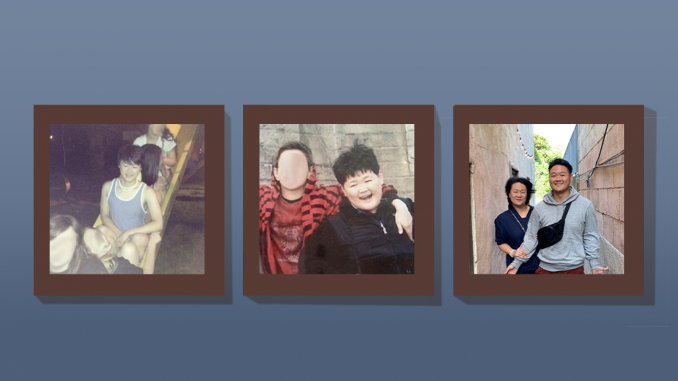
Content Warning: This story discusses eating disorders, which may be upsetting to readers.
I was in elementary school the first time I grew conscious of my weight.
I was a shy kid who played with action figures during recess and indulged in multiple chicken patties in the cafeteria.
A chubby Korean kid — who was very cute, mind you — was a jarring sight within our annual class photos. The other students shared this sentiment and naturally separated themselves from me.
That isolation manifested into a negative attitude toward my physical appearance that would follow me for the rest of my life.
I was 12 years old when I began a mandated weight loss program. It was issued by my pediatrician, who was worried about my obesity and future health risks. The rehabilitation facility was full of older clients of larger stature. It’s weird to think about a child having to be in that space and how it influences their perception of their own bodies — it definitely didn’t help me.
But, the sessions reduced my ongoing weight gain and established exercise into my daily routine. It was the first time I felt good about my body, and I soon became obsessed with chasing that feeling.
I constructed my ideal self in my head and dedicated everything to making it a reality.
The first step was joining my middle school’s track and field club. I was under the impression that running was the quickest way to cut fat, and while it accounted for a large amount of weight loss, it wasn’t happening “fast” enough for me.
My pediatrician once told me a healthy diet was the most important part of any weight loss journey. My mind was fixated on the word “diet” and I began experimenting, spending entire days nibbling on a granola bar and oftentimes drinking water to satiate my hunger.
I didn’t realize then but I know understand that I was struggling with anorexia.
In high school, I was in ideal shape, played multiple sports, and was in my first relationship. I became my “ideal” self — or so I thought.
I fainted multiple times from malnutrition and found myself again in the hands of physicians. They couldn’t understand why I was losing consciousness so often.
And I was the only one who knew the truth.
I was actively starving myself to maintain an unsustainable lifestyle. I was willing to sacrifice my own health to “look great” because that feeling of self-confidence at 12 years old was the happiness I desired and something I was deprived of since a young age.
It took time for me to process and gain a deeper understanding of the toxic relationship I had with my body. But the most important part of my journey was establishing my first support system through my older sister.
It was the first time I spoke to anyone about my eating disorder and mental health. It was terrifying, but nevertheless, empowering. My sister became someone I could lean on and someone that would always listen to me. This was and still is the most pivotal time of my life.
It was important to find spaces that encourage vulnerability and to hold myself accountable for my own happiness because it started me on the road to educating myself on nutritional values and healthy eating habits.
I’m currently in my fourth year at Temple University and looking forward to graduation. I’m proud of the strides I’ve made in my mental and physical health journey, but I also understand that my insecurities will be with me for the rest of my life.
On paper, that sounds terrible, but I’ve come to a realization that while I may carry “baggage,” there are places I can check them in. I started going to therapy recently, which became a place for me to unload my past and continuously move forward in life. I also have my friends who provide me with therapeutic conversations and endless bouts of laughter.
Last February, The Temple News covered National Eating Disorders Awareness Week with various students sharing their own personal experiences. I was inspired reading through them all, and I felt relieved knowing there’s a community of students like myself.
I hope this story can do the same for others. I hope we can support each other in our endeavors to find happiness — a happiness self-constructed upon a healthy body and, just as important, a healthy mind.


Be the first to comment